
When it comes to large-scale construction projects, particularly those involving architectural area parking lot lights, the procurement process can heavily influence both your timeline and budget. While local distributors might seem like a convenient choice due to their proximity, there are several compelling reasons why they may not be the best option for lighting contractors looking to buy in bulk.
Large-scale lighting projects, such as those involving parking lots, require careful consideration of various factors. These include the types of fixtures, energy efficiency, installation logistics, and overall aesthetic requirements. When planning such a project, it is essential to start by clearly defining your specific needs.
For example, architectural area lights should not only illuminate the space effectively but should also integrate seamlessly into the surrounding architecture. This means that contractors need to consider color temperature, mounting styles, and luminaire designs that align with the overall project vision. Additionally, the choice of lighting can significantly influence the safety and security of the area; well-lit spaces deter crime and enhance visibility for drivers and pedestrians alike, making it a crucial aspect of the planning process.
Another critical aspect to evaluate is the anticipated volume of light fixtures required. Bulk purchasing can lead to significant cost savings, but this is contingent on securing the right prices and products. Local distributors often have limited stock options and may not be able to meet large project demands in a timely manner. Furthermore, understanding the maintenance requirements of the fixtures selected is vital, as this can impact long-term operational costs. Choosing durable, low-maintenance options can reduce the frequency and expense of replacements and repairs, ensuring that the project remains cost-effective over time.
Finding the right suppliers who can meet the demands of large-scale lighting projects is crucial. While local distributors might seem like an accessible option, they can fall short in several areas compared to more specialized suppliers.
National suppliers, for instance, often have a wider range of products and more competitive pricing due to their larger-scale operations. They can also provide a more extensive inventory that is capable of meeting the needs of bulk purchases without delay. In addition, many national suppliers offer advanced logistical support, including delivery schedules that align with project timelines, which can be a game-changer for contractors working under tight deadlines. The ability to source fixtures that meet specific regulatory standards, such as energy efficiency certifications, is another advantage of partnering with established suppliers who are familiar with industry compliance requirements.
Cost plays a significant role in the decision-making process. While you might expect that choosing a local distributor could save on shipping and transportation costs, the reality is often more complex. Many local distributors offer higher prices on lighting fixtures due to their limited buying power and overhead costs.
In contrast, national suppliers with more extensive networks can often negotiate better deals with manufacturers, passing those savings onto contractors. By taking advantage of bulk purchasing power, contractors can realize substantial reductions in overall project expenditure. Moreover, investing in energy-efficient lighting solutions can lead to long-term savings on utility bills, further enhancing the financial viability of the project. It’s also worth considering the potential for rebates or incentives offered by local governments for using energy-efficient technologies, which can offset initial costs and improve the project’s return on investment.
Quality assurance is non-negotiable when it comes to lighting projects. The last thing a contractor wants is to deal with faulty fixtures that result in wasted time and budget, not to mention potential safety risks. Ensuring that every component meets rigorous standards not only enhances the overall aesthetic of a project but also contributes to the longevity and reliability of the installation. This is especially critical in commercial settings where lighting plays a pivotal role in both functionality and ambiance.
Many local distributors may not have access to the most reliable and innovative products available in the market. In contrast, suppliers that focus on bulk sales typically vet their products more rigorously and offer better warranties, ensuring peace of mind for contractors. A robust warranty can be a game-changer, as it protects the investment and provides a safety net should any unforeseen issues arise post-installation. Furthermore, understanding the nuances of warranty terms—such as coverage duration and conditions—can empower contractors to make informed decisions that align with their project goals.
Engaging with a national supplier not only ensures quality and pricing advantages but also fosters long-term relationships with manufacturers. This can lead to additional benefits such as priority access to the latest technologies and updates in product lines. Staying ahead of industry trends is crucial for contractors who aim to offer cutting-edge solutions to their clients. By collaborating closely with manufacturers, contractors can also provide feedback that may influence future product developments, ensuring that their needs are met in the evolving marketplace.
If any issues arise with the purchased products, maintaining a strong relationship can simplify the resolution process. National suppliers are often more equipped to handle returns or exchanges, as well as provide expert advice on installation and maintenance. Additionally, these relationships can lead to exclusive training opportunities for contractors, allowing them to enhance their skills and knowledge about new products and installation techniques. This not only boosts their credibility but also enhances the overall quality of service they can provide to clients.
For large projects to progress smoothly, timely delivery of materials is essential. Local distributors may lack the inventory, leading to delays that can halt project timelines. This unpredictability can significantly impact a contractor’s bottom line and their ability to meet deadlines. Moreover, delays can lead to a ripple effect, causing complications in scheduling subcontractors and potentially straining client relationships due to unmet expectations.
On the other hand, specialized suppliers with warehouses in multiple regions can streamline the delivery process. They can manage inventory more effectively and provide accurate timelines for when materials can be expected on-site, allowing contractors to plan accordingly. This logistical advantage not only helps in maintaining project momentum but also enables contractors to allocate resources more efficiently. Furthermore, having a reliable supply chain can enhance a contractor’s reputation, as clients are more likely to trust those who consistently deliver projects on time and within budget. In an industry where timing is everything, the ability to predict and manage inventory can be a significant competitive edge.
In today’s digital age, leveraging technology can greatly streamline the procurement process. Many national suppliers offer sophisticated online platforms that enable contractors to manage orders, check inventory, and track shipments in real time. These platforms often come equipped with advanced analytics tools that allow contractors to assess purchasing trends, forecast needs, and optimize inventory levels, ensuring that they are always prepared for upcoming projects.
Utilizing these tools not only saves time but also enhances accuracy in ordering. Local distributors generally lack such robust systems, complicating the purchasing process and often leading to errors that can cause project delays. Moreover, the integration of automated reordering systems can help contractors avoid stockouts and ensure that essential materials are always on hand, further streamlining operations and enhancing productivity.
By centralizing orders through a national supplier, contractors can maintain better control over their purchasing process. This allows the possibility for consolidating different light fixtures, bulbs, and accessories into one cohesive order, improving efficiency and reducing logistical headaches. Centralized ordering also facilitates better negotiation power with suppliers, as bulk purchases often lead to discounts and favorable terms, which can significantly impact the bottom line.
This centralized approach can provide significant administrative benefits, including reducing the time and resources spent on managing multiple smaller orders from local suppliers. Additionally, it allows for a more streamlined communication process, as contractors can work with a single point of contact for all their procurement needs, reducing the chances of miscommunication and errors that can arise from dealing with multiple vendors.
Environmental considerations are becoming increasingly important in the realm of construction projects. Many architects and clients are now demanding energy-efficient lighting solutions that not only save costs but also minimize carbon footprints. The push for sustainability has led to a surge in innovative lighting technologies, such as LED systems and smart lighting controls, which can significantly reduce energy consumption and operational costs over time.
National suppliers often have greater access to the latest energy-efficient technologies and can provide comprehensive solutions that meet these demands. Local distributors may not be as well-versed in the latest advancements or available products in energy-efficient lighting. Furthermore, national suppliers are more likely to offer educational resources and support regarding the implementation of green technologies, helping contractors make informed decisions that align with sustainability goals. This partnership not only enhances the quality of the projects but also positions contractors as leaders in the green building movement, appealing to a growing market of environmentally conscious clients.
In conclusion, while local distributors may seem like a convenient option for purchasing architectural area parking lot lights in bulk, the drawbacks often outweigh the benefits. From cost considerations and quality assurance to supplier relationships and technology, the advantages of partnering with specialized suppliers are clear.
By understanding the full scope of your project needs and evaluating potential suppliers carefully, you can make informed decisions that will ultimately benefit your business and ensure successful project outcomes. In a competitive market, leveraging the advantages of national suppliers can position your contracting business for long-term success.
Ready to elevate your lighting projects while maximizing your budget? Choose LumenWholesale for your bulk architectural area parking lot light needs. Our commitment to quality, affordability, and convenience sets us apart from local distributors. With free shipping and a vast selection of spec-grade lighting products, we ensure you receive the best value without any hidden costs. Don’t compromise on performance or price. Wholesale Lighting at the Best Value is just a click away. Partner with LumenWholesale today and light up your projects with confidence.
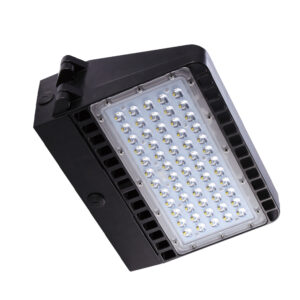
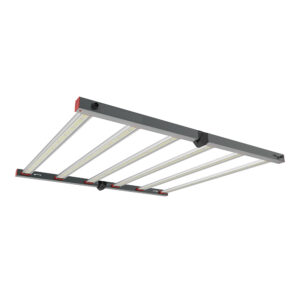
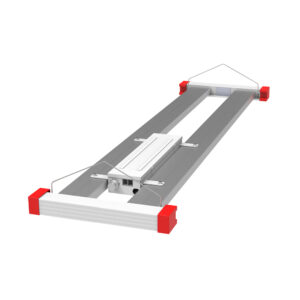
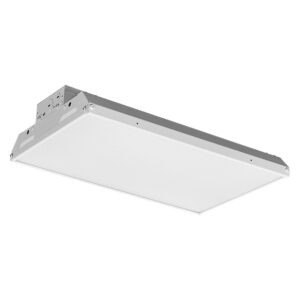
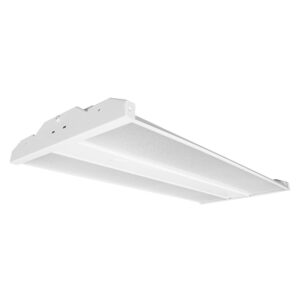
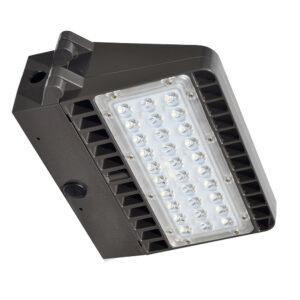

Discover essential insights into electrical outlets that every lighting contractor should master.

Discover why purchasing chandelier lights in bulk from local distributors might not be the best choice.

Discover the essential insights every lighting contractor needs to know about ceiling lights.

Discover essential insights into wrap lighting fixtures with our comprehensive guide tailored for lighting contractors.
Get notified when NEW deals are released.
Optimize your budget with wholesale discounts.
Only top-quality, specification-grade lighting products.
No additional costs at checkout - what you see is what you pay.
We understand the unique needs of contractors.